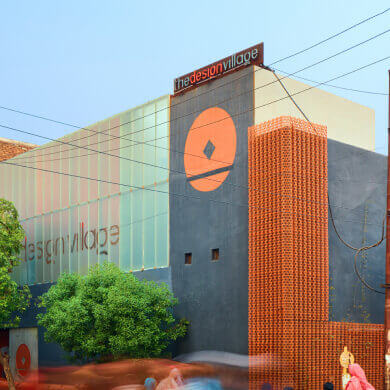
we believe in delivering dreams and having fun while doing it. we live life through design. we want to be inspired to inspire others. we feel architecture must be read, reflected upon, shared and experienced, therefore we are learners for life. we want to give back more than we take.
The Ministry of Tourism, Government of India, commissioned us to develop a tourism masterplan for four iconic sites - Taj Mahal, Red Fort, Qutub Minar and Fatehpur Sikri, located in two of the significant tourism circuits- Delhi and Uttar Pradesh. The intent was to develop these world heritage sites in a holistic manner with focus on issues concerning

In concurrence, the project is also envisaged to foster skill development and thus create livelihood opportunities for the locals.
Literally and metaphorically translated as ‘God’s World', ‘Bhubaneswar’ is a living evidence of the grandeur of its historical past as the capital city of Kalinga Dynasty and now as the capital of Odisha. As a living heritage per se, the old city of Bhubaneswar needs to be preserved and passed onto the future generations both as material and symbolic marker of its rich treasure of temple architecture- the tangibles and its age-old cultural manifestations and traditions- the intangibles. Thus, ‘Bhubaneshwar Ekamravan Plan’ was conceived as a road map for the revival and preservation of the heritage value and grandeur of the region, with a particular focus on the restoration of lingaraj temple precinct.


Strengthening the linkages between the natural and built heritage repositories of the old city ubiquitously emerged as a significant objective throughout the project. The project was envisaged to create livelihood opportunities through means of developing tourism in the city.


Archohm’s vision to elevate the role of architecture and design in the society, led us to initiate the Design Village. Offering undergraduate and post graduate programmes in design, TDV exemplifies its vision of impact through design. The village has a great international and industry network. A great vehicle to bridge the gap by creating new pedagogies that are relevant to practice.